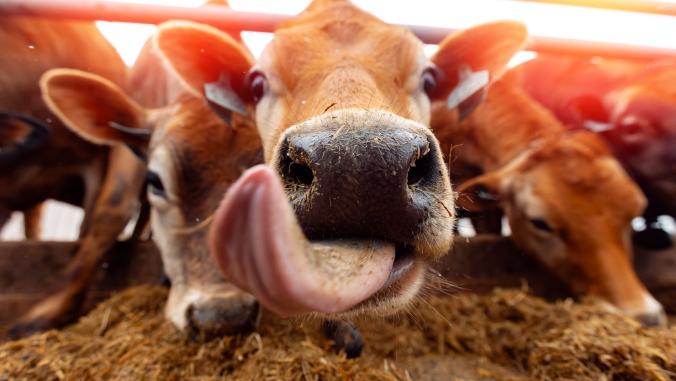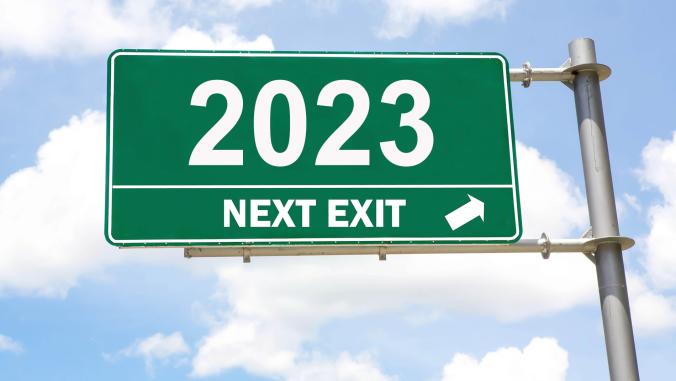Coke's Message in a Bottle
The Coca-Cola Company's announcement last week that it had set a goal "to recycle or reuse all the plastic bottles we use in the U.S. market," and invest $60 million in a recycling plant, was a bold, even audacious move, one sure to give the company a new green sheen. Sure enough, the announcement got the endorsement of the National Recycling Coalition, the industry-friendly group of recycling advocates.

The Coca-Cola Company's announcement last week that it had set a goal "to recycle or reuse all the plastic bottles we use in the U.S. market," and invest $60 million in a recycling plant, was a bold, even audacious move, one sure to give the company a new green sheen. Sure enough, the announcement got the endorsement of the National Recycling Coalition, the industry-friendly group of recycling advocates.
I'm guessing that setting such an ambitious goal was no small matter for Coke. Consumer brands, especially leaders, understand that activists like to make an example of them. Think about the targets of the biggest corporate environmental activist campaigns of the past 20 years: Citigroup, Dell, Home Depot, McDonald's, Staples, Starbucks, Wal-Mart -- brand leaders all. (It's no coincidence that, to their credit, most of these companies eventually became environmental leaders in their respective sectors, even if they were initially dragged kicking and screaming to the party.) The activist community has a great knack for turning a well-liked brand into a poster child for greed.
Coke, perhaps the biggest global brand ever, certainly has had its turn on the environmentalists' hot seat over the years. In the early 1990s, for example, the company had been targeted by recycling groups on charges that it had backtracked on a promise to include more recycled material in its plastic beverage containers. It was a classic case of No Good Deed Goes Unpunished.
In 1990, in the aftermath of the media frenzy commemorating the twentieth anniversary of the first Earth Day, during which "overflowing landfills" was viewed (erroneously, it turned out) to be one of the planet's greatest environmental ills, both Coke and Pepsi announced they would begin selling beverages in plastic bottles made with up to twenty-five percent plastic recycled from used bottles. Actually, it was more than that: Each promised that it would out-green the other, being the first to reach this goal. It was a big deal for these stalwart beverage companies. The move was lauded by recycling advocacy groups -- which, in their typical understatement, viewed it as, perhaps, a step in the right direction.
But neither Coke nor Pepsi succeeded in meeting that goal, earning the rage of these same activists, in particular a small but vocal group called the Grassroots Recycling Network. By decade's end, with both companies struggling to get their share of recycled plastic out of the single-digit range, Coke and Pepsi agreed with activists to a downsized goal of using ten percent recycled plastic in its bottles.
In retrospect, making a promise it couldn't keep might not have been the smartest move. Coke, for its part, doesn't own roughly three-quarters of its bottlers, which are independent franchises. And the market for recycled plastic is affected by things outside of the company's control -- such as the price of virgin plastic, which hinges on the fluctuating price of oil. When oil prices are high, virgin plastic becomes more expensive, making recycled plastic more attractively priced. When oil is cheap, recycled plastic typically is more expensive than virgin.
All this time, plastic bottles were garnering an ever-greater share of the beverage market. With a limited availability of recycled plastic, Coke and Pepsi were getting farther and farther behind their goals. So, the activist groups attacked the brand leader, waging a nationwide boycott of Coke products. They bought ads in major newspapers urging consumers to "Think before you drink Coca-Cola," and asking them to mail crushed two-liter bottles back to the company with the message to "Use it again!"
Talk about a message in a bottle.
Others piled on. The politically progressive long-distance phone company Working Assets sent an alert to more than 300,000 customers, generating more than 40,000 letters, e-mail, and calls to Coke's CEO. Local governments in Florida, Minnesota, and California passed resolutions targeting Coke's recycling waste. And socially responsible investors such as the As You Sow Foundation asked the company to stop lobbying against bills requiring refundable deposits on beverage containers.
Why target Coke and not Pepsi? Coke's brand leadership made it an obvious target. In a 2002 "fact sheet", the Grassroots Recycling Network explained:
The Coca-Cola Company is the overwhelming soft drink industry leader, with 44 percent market share in 1997. If Coke chooses to act responsibly, Pepsi and other soft drink companies will follow. Coke is a highly profitable company that industry sources say is reaping windfall profits from increasing reliance on plastic packaging in the U.S. If any company has the resources and the capability to take responsibility for its products and packaging, it is Coca-Cola.
It's not simply brand leaders who are at risk, of course. Any brand could become a target of disgruntled customers or activists. And competitors could get tarred with the same brush. If Coke and Pepsi are seen as eco-villains, the sentiment could bubble up to all beverage companies.
What could Coke have done? In their otherwise admirable race to out-green each other, Coke and Pepsi inflated expectations and failed to mitigate risks. Coke could have invited GRRN or other activists to help it transform the market, directing its resources toward educating consumers or pressuring its bottler franchises to use more recycled plastic. The beverage company could have better explained what influenced its ability to cost-effectively use recycled plastic, such as the price of oil. And it could have worked with local governments to launch or improve plastics recycling operations. (Years later, those operations are still in need of improvement, as more and more beverages are consumed outside the home in plastic bottles, thereby reducing the likelihood of their being recycled.)
Consumers, even activists, can accept imperfection and incremental solutions when they know that the company understands the issue at hand, is sufficiently concerned, and is taking adequate steps to change things, including influencing others -- suppliers, competitors, legislators -- to join them in becoming part of the solution. But when these influencers don't understand the full picture, they can get ornery and downright dangerous.
By the way, there's an interesting coda to the Coke story. The nationwide boycott campaign had minimal impact on Coke's sales; it was barely a blip on the company's radar. But in 2000, the Grassroots Recycling Network added a twist to its campaign: the Dirty Jobs Boycott. It urged U.S. college students to shun Coca-Cola's recruiters when they came to campus to do interviews.
That had an impact. Even a small drop in the number of new recruits hits companies where they live. Big companies need a steady stream of the best and the brightest knocking on their doors, and activists understand that. When Coke's recruiters reported the drop in campus interest, that got management's attention. The environmental department soon got a call from company brass, demanding answers.
Perhaps this time will be different. As Coca-Cola works toward reclaiming 100% of its plastic bottles, let's hope it won't need to recycle the lessons of the past.





